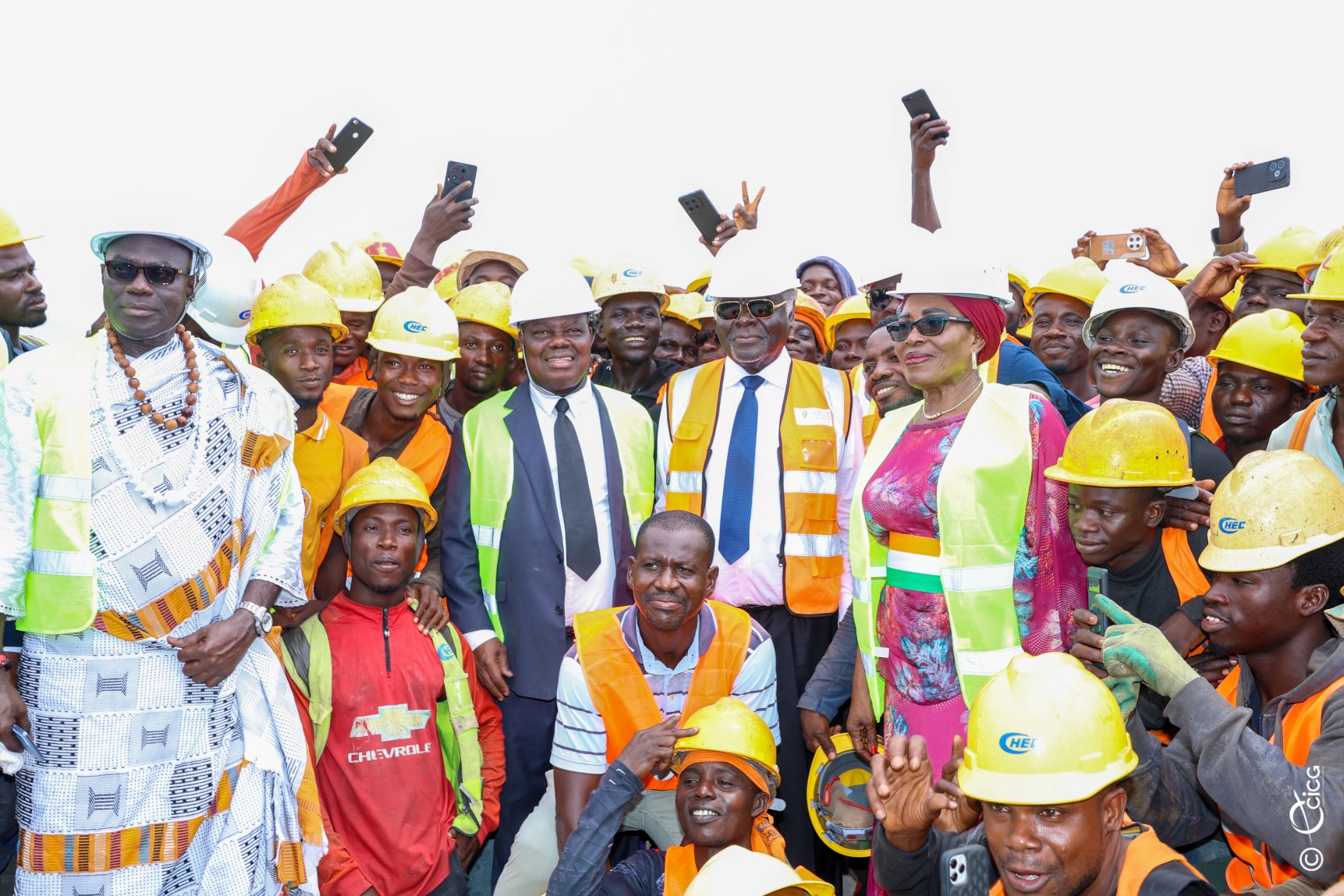
Road Infrastructure: Prime Minister Robert Beugré Mambé Reviews Progress of Six Construction Projects in Abidjan
On November 5, 2024, Prime Minister Robert Beugré Mambé, accompanied by Minister of Equipment and Road Maintenance, Amédé Koffi Kouakou, toured six key road infrastructure projects in Abidjan. The sites include the Akwaba junction development in Port-Bouët, the construction of the major Koumassi interchange, and four interchanges along Germain Coffi Gadeau Boulevard (formerly Boulevard François Mitterrand) at the École de Police, Riviera 3, Palmeraie, and Faya junctions in Cocody.
The Akwaba junction project, currently 85% complete, is expected to be finished between December 2024 and January 2025. The Koumassi major interchange, which is 43% complete, is slated for completion by August 2025. Construction of interchanges at the École de Police, Riviera 3, and Palmeraie junctions is progressing, with the project set for completion in March 2026. These interchanges are 27% complete. The Faya interchange, at 82% completion, is scheduled to be finished by April 2025.
"We encountered engaged and determined companies on-site," said the Prime Minister, emphasizing that they were instructed to complete the projects ahead of the scheduled deadlines.
Prime Minister Mambé also took the opportunity to commend residents for their patience despite the inconveniences caused by the construction sites in Greater Abidjan. "Tell the Ivorians that one of President Alassane Ouattara's primary concerns is to provide them with quality infrastructure, because the strength of a country and the vitality of its economy also depend on the quality of its infrastructure, which creates investment opportunities for businesses," he explained.
These six infrastructure projects, with a total cost of 145 billion CFA francs (excluding tax), are part of President Alassane Ouattara's broader road development program. Their goal is to enhance the city’s infrastructure and improve mobility throughout Abidjan. The projects also create job opportunities, with 80% of the workforce being Ivorian, including 30% young women.

